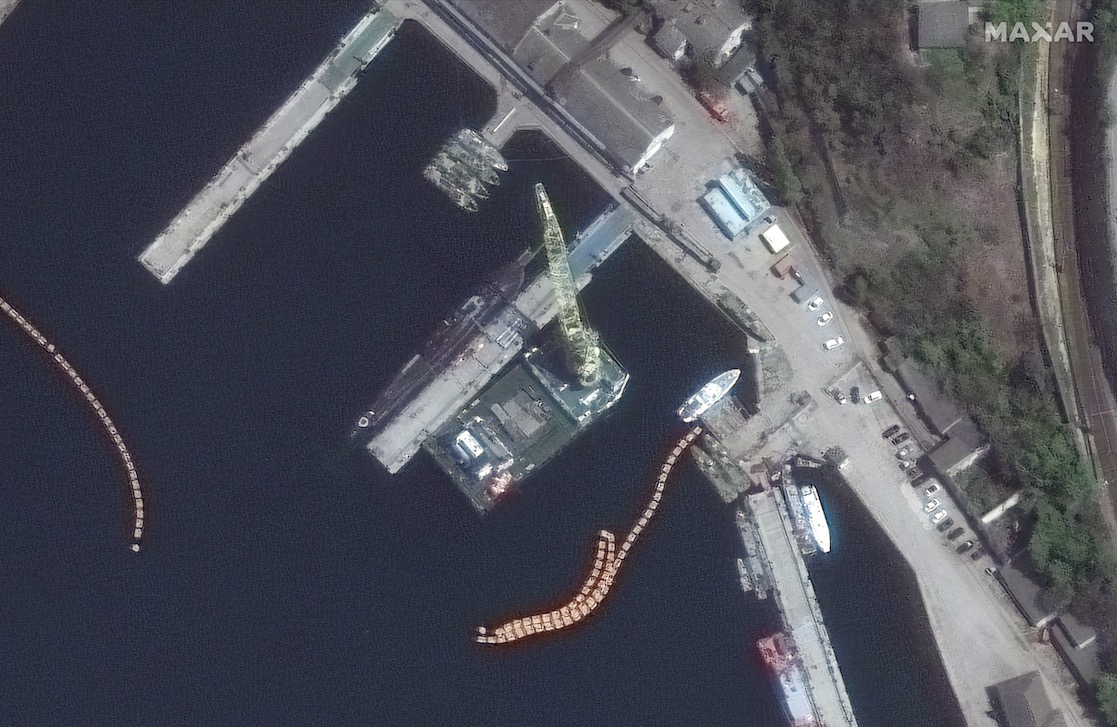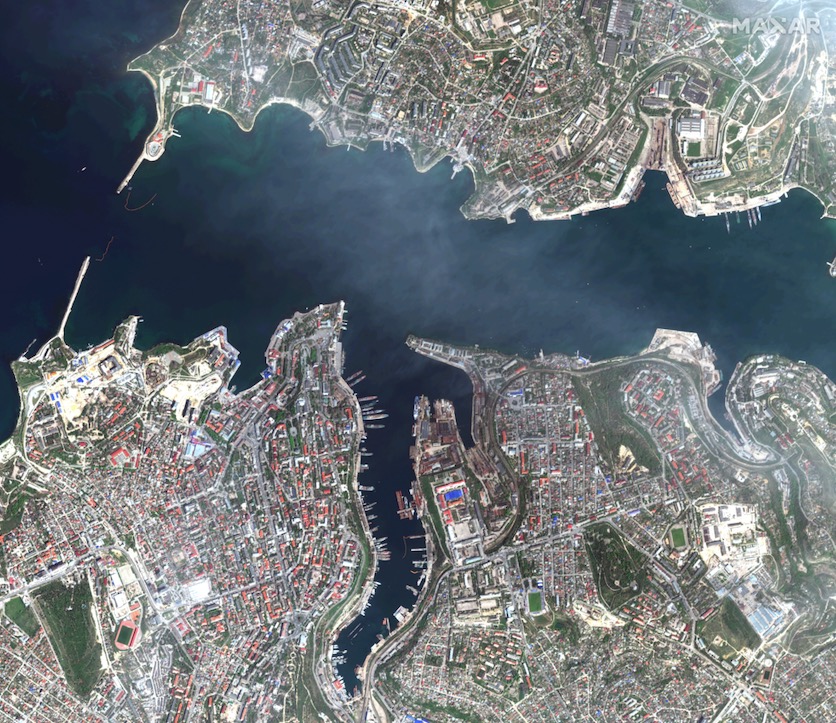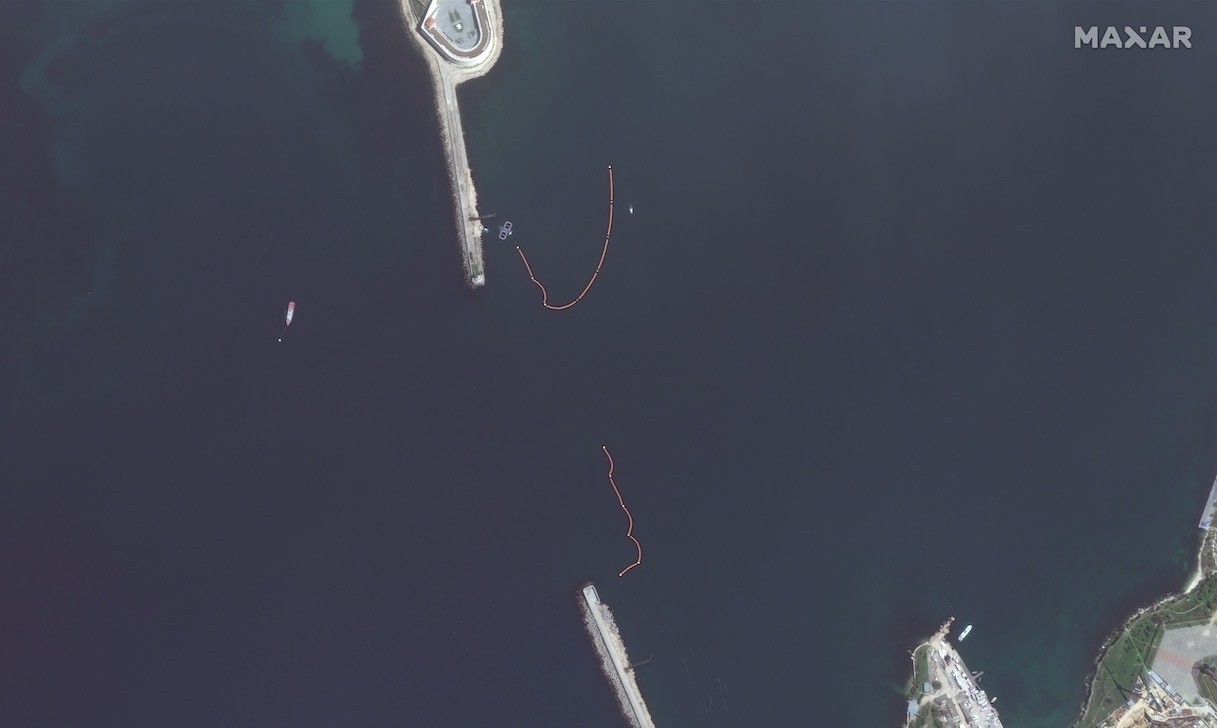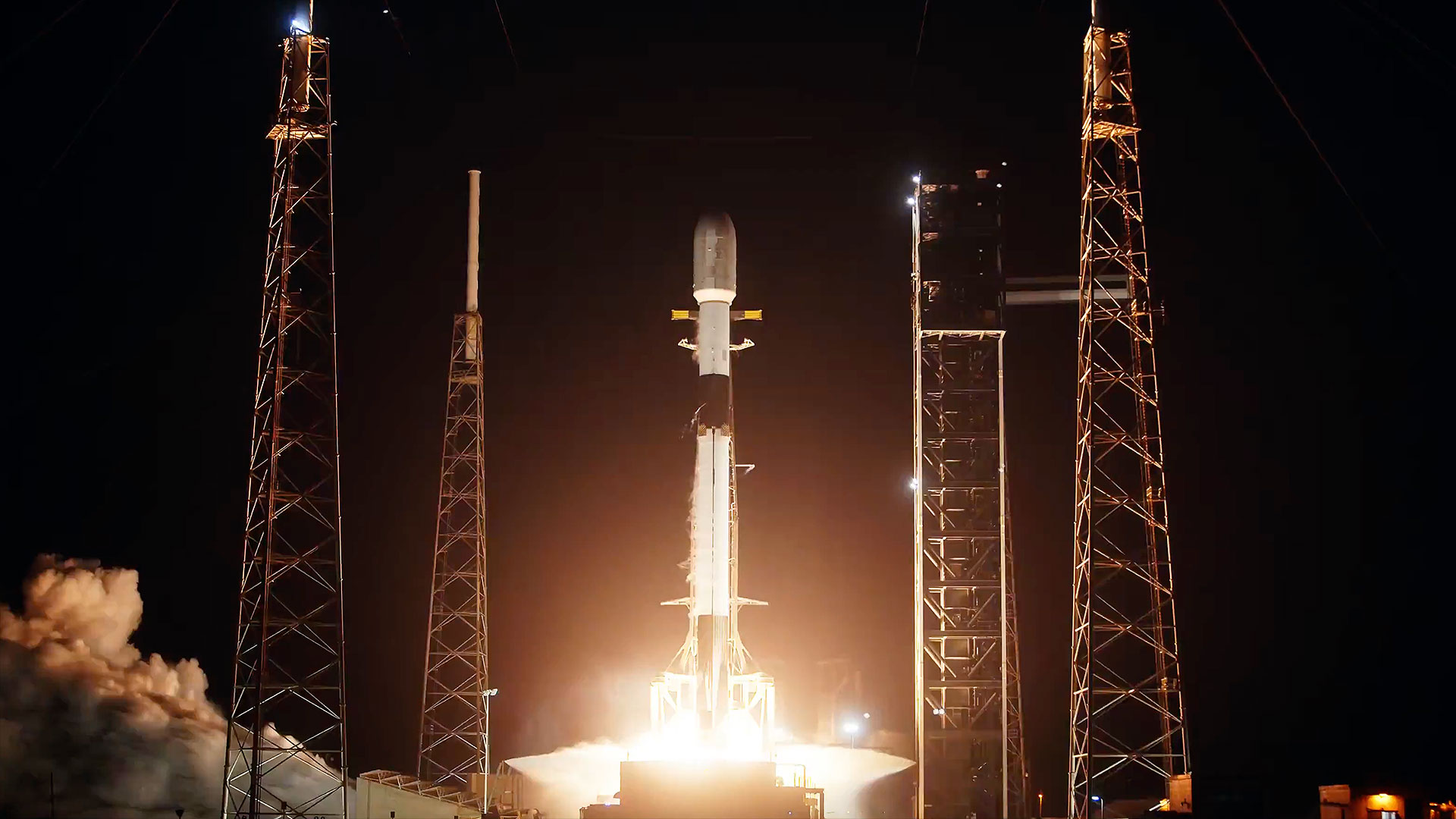Satellite photos show missiles being loaded onto Russian submarine. Dolphin pens, too.

A sharp-eyed satellite spotted missiles being loaded onto a Russian submarine on Friday (April 29).
A new photo captured by Maxar Technologies' WorldView-2 spacecraft shows what appear to be Kalibr missiles sitting next to a docked Kilo-class submarine in Sevastopol, an important Black Sea port in the Crimean Peninsula.
"The imagery reveals the bow section of the Kilo submarine with extended trays to load the missiles, as well as two trucks positioned nearby that are used to transport the missiles to the quay for loading onto the submarine," Maxar representatives wrote in an emailed statement.
Related: Russia's invasion of Ukraine as seen in satellite photos
Ukraine invasion's impacts on space exploration: Live updates
Russia has recently attacked Ukraine with Kalibr missiles launched from submarines in the Black Sea, Maxar representatives noted in the statement.
In addition to the submarine photo, WorldView-2 also captured a broad view of Sevastopol on Friday, as well as imagery of dolphin pens at the entrance to the city's harbor. Russia is likely using trained dolphins to protect the harbor against infiltration by Ukrainian divers, NBC News reported on Thursday (April 28).
Satellites operated by Maxar and other private companies like Planet and BlackSky have been helping government officials, aid workers and the public at large monitor the ongoing Russian invasion of Ukraine, which began on Feb. 24.
Breaking space news, the latest updates on rocket launches, skywatching events and more!
Russia initially attacked broad swaths of Ukraine but recently has focused more on the southern and eastern parts of the country, after being beaten back in other regions.
Sevastopol and the rest of the Crimean Peninsula were Ukrainian territory until February 2014, when Russia invaded and annexed the region.
Mike Wall is the author of "Out There" (Grand Central Publishing, 2018; illustrated by Karl Tate), a book about the search for alien life. Follow him on Twitter @michaeldwall. Follow us on Twitter @Spacedotcom or on Facebook.

Michael Wall is a Senior Space Writer with Space.com and joined the team in 2010. He primarily covers exoplanets, spaceflight and military space, but has been known to dabble in the space art beat. His book about the search for alien life, "Out There," was published on Nov. 13, 2018. Before becoming a science writer, Michael worked as a herpetologist and wildlife biologist. He has a Ph.D. in evolutionary biology from the University of Sydney, Australia, a bachelor's degree from the University of Arizona, and a graduate certificate in science writing from the University of California, Santa Cruz. To find out what his latest project is, you can follow Michael on Twitter.


